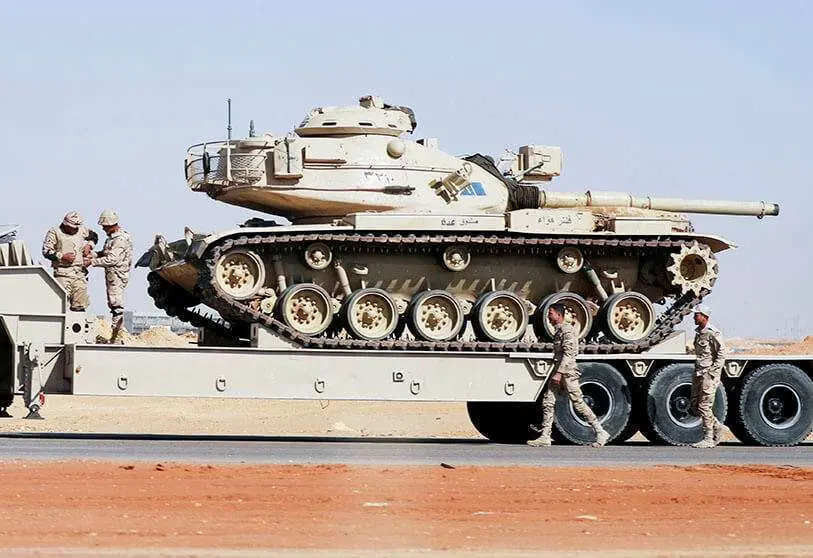Egypt launches massive military exercise on the border with Libya to deter Turkey

Just one day after it became known that Turkey and Russia were working towards an "immediate" ceasefire in Libya that would end the open war from 2011, and that even Italy, the rest of Europe and Egypt accepted the possible pact, the latter seems to have broken away from the understanding with the announcement of new military exercises on the border with Libya, called "Decisive 2020". According to the Egyptian channel 'Cairo and the People' on its Twitter account, the maneuver is taking place in the western part of the country, "near Libya" and seeks to "grease the coordination of the Navy, Air Force and Army in case of intervention in Libya," according to The Political Room.
The president of the country, Abdel Fattah al-Sisi, is said to have given the order to carry out the exercises in response to Turkey's latest move in the conflict, which consists of carrying out "in the next period" massive exercises in three areas of the Libyan coast with the participation of 17 aircraft and 8 warships, according to the Turkish Ministry of Defence. The local media, which quoted the Turkish Navy, said that this maneuver would be called "Navtex" and would be divided into three operations, "Barbaros", "Targot Rais" and "Chaka Bay". "They are training to anticipate the war in the eastern Mediterranean," Al-Masdar News reported.
It should be recalled at this point that while Cairo supports the Liberation National Army (LNA), commanded by Marshal Khalifa Haftar, Ankara has become an invaluable ally of the rival faction, the Government of National Unity (GNA), led by Prime Minister Fayez Sarraj. Following the latter's victory over the capital, Tripoli, the war has now moved to the fronts of the geostrategic enclaves of Sirte in the oil-rich north and Al-Jufra in the centre, where the country's largest air base is located. Both are under the control of the LNA, but Turkey, together with the GNA, has shown its willingness to take them away from Haftar, something that Egypt considers a "red line" that would provoke its direct military intervention in the conflict.
However, analysts agree that an open warfare between Cairo and Ankara is unlikely, as it would probably lead to "mutually assured destruction". The alternative they have left, then, to try to win the battle without going out at the same time defeated, is to carry out these massive military exercises that have a high deterrent capacity because of the show of force they entail. "Such a dangerous escalation between these two great military powers is certainly not desirable for either side, given how costly and dangerous it is likely to be," explains Forbes expert Paul Iddon on the subject.
In addition to the military route, the political option remains on the table. In early June, Al-Sisi presented a peace initiative based on a cessation of hostilities and an end to foreign interventionism in the Libyan conflict. It was immediately supported by the rest of the LNA's partners, such as France, the United Arab Emirates (UAE) and even Russia, which has traditionally also opted for Haftar. However, it was rejected by the GNA and by Turkey, which would only accept a UN-led peace process, as it should be remembered that it was the United Nations that sponsored the government now led by Sarraj.
This Wednesday, the Egyptian Foreign Minister, Sameh Soukry, has once again claimed the Egyptian roadmap before the UN Security Council. "Achieving stability in Libya is vital for forming a consensus government, dismantling all militias, unifying the army and distributing the GDP fairly among the Libyan people," said the diplomat.
"The plan will respect all international efforts to resolve the Libyan crisis so far and includes a 48-hour ceasefire in all Libyan territories, the dismantling of militias and the handing over of weapons to the LNA, the expulsion of foreign mercenaries from the country and the resumption of the Libyan 5+5 Joint Military Commission under the auspices of the UN," Egypt Independent recalled.








